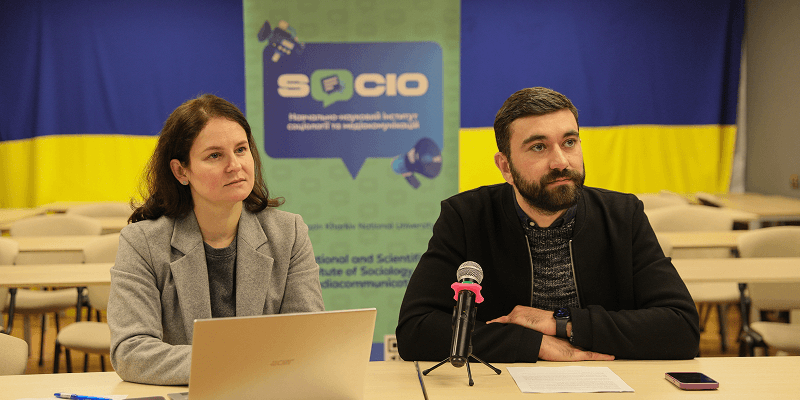Scientific Horizons of Karazin: The Opening of the Molecular-Genetic Research Department at the "Karazin BioMed" Biomedical Research Laboratory
.jpg)
At Karazin University, with the participation of the university administration, the opening of a new modern educational and research space took place — the Molecular Genetic Research Department in the Biomedical Research Laboratory "Karazin BioMed" at the Department of Biochemistry, School of Biology, which is celebrating its 90th anniversary this year.
"90 years ago, in 1934, the Department of Biochemistry opened its doors to its first students. This year, we are marking the 90th anniversary of the Department of Biochemistry by opening a new department of the 'Karazin BioMed' biomedical research laboratory, specifically the Molecular Genetic Research Department.
Today, the laboratory and the department in general provide professional training for bachelors and masters in the educational programs 'Biology,' 'Biochemistry,' and 'Medicine.' Starting next year, we plan to recruit students for the 'Laboratory Diagnostics' educational program.
.jpg)
We are also actively involved in preparing specialists in the fields of 'Laboratory Genetics,' 'Clinical Immunology,' and 'Clinical Biochemistry' through the Center for Postgraduate Medical Education at Karazin University. Educational activities in this direction are implemented in the form of thematic improvement cycles and practical training for the continuous professional development of healthcare workers.
The scientific research activities of the new department are focused on developing new effective methods for preserving human cell viability in adverse conditions, as well as creating innovative test systems for the express diagnostics of transplant suitability for military and civilian medicine.
A year ago, we began collaborating with sponsors and employers who assisted us with equipment and recommendations for organizing the educational and research space. We did everything to ensure that the skills students acquire meet the requirements of employers and the modern labor market. Today, we have one of the best-equipped laboratories in Ukraine. Using the latest unique equipment, students from the Biological and Medical Schools, as well as participants in postgraduate medical education courses, will gain skills and knowledge in practical molecular biology, molecular genetic diagnostics of human diseases, forensic medical criminalistic expertise, and more starting from the next semester," said Yurii Kot, Associate Professor of the Department of Biochemistry and Head of the Laboratory.
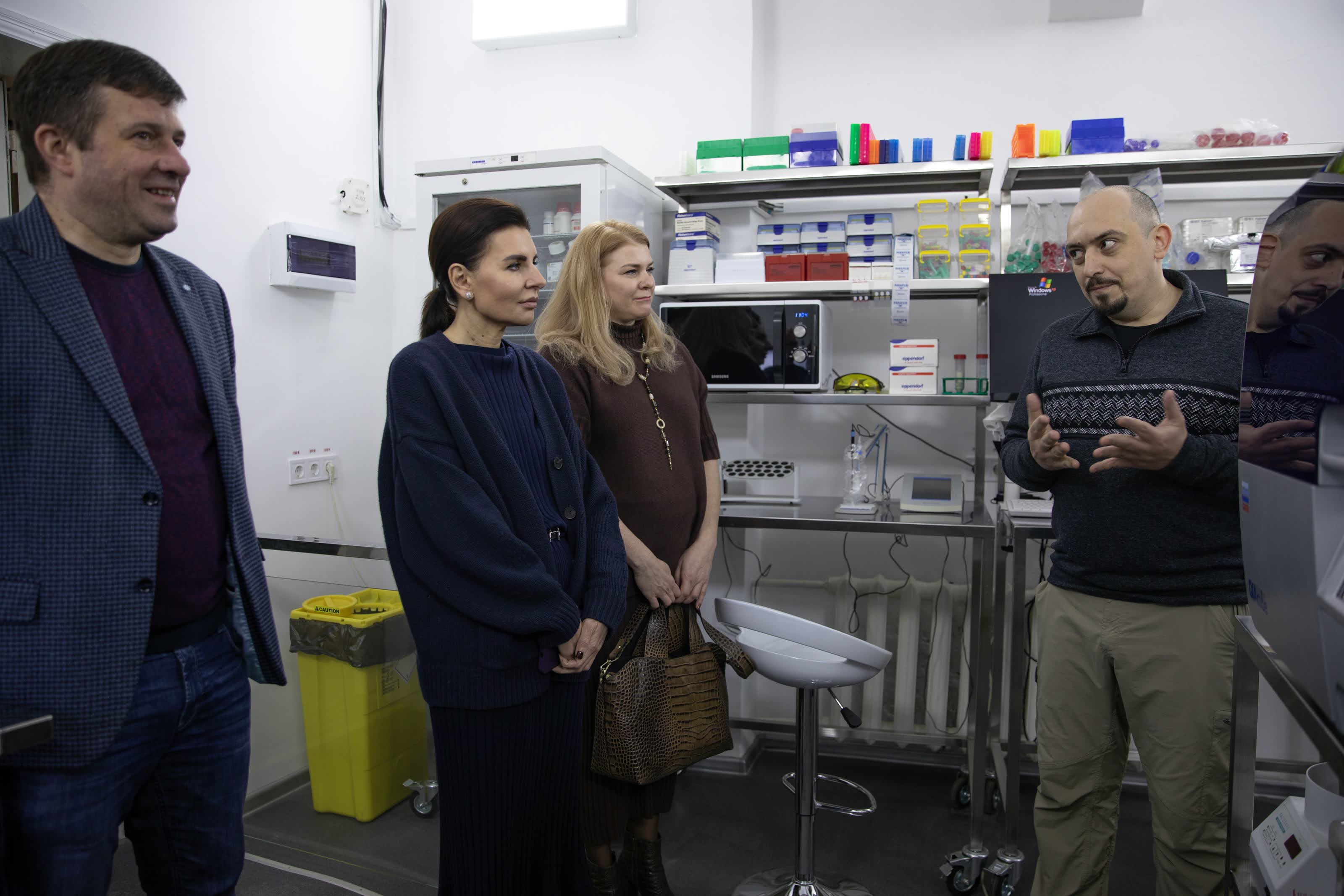
The separate educational and research laboratory is equipped with a modern robotic DNA, RNA, and protein extraction system, the QIAcube from Qiagen, a world-renowned manufacturer of molecular genetic research equipment. The device allows for the automated extraction of highly purified DNA, RNA, and proteins from various biological objects and samples, including viruses, for sequencing, genotyping, gene expression analysis, proteomics, and molecular diagnostics.
The laboratory also features a real-time PCR system with 6 optical modules AriaMx (Agilent) for conducting quantitative and qualitative multiplex PCR analysis in real time.

For working with potentially hazardous biological material, the department has an isolator box. By learning to work with such advanced equipment, specialists will meet the requirements of both Ukrainian and foreign employers in the field of 'Molecular Genetic Diagnostics.'
Each device is connected to the network and has its own virtual simulator. If any students or participants are studying remotely, they have the opportunity to work with the equipment online.
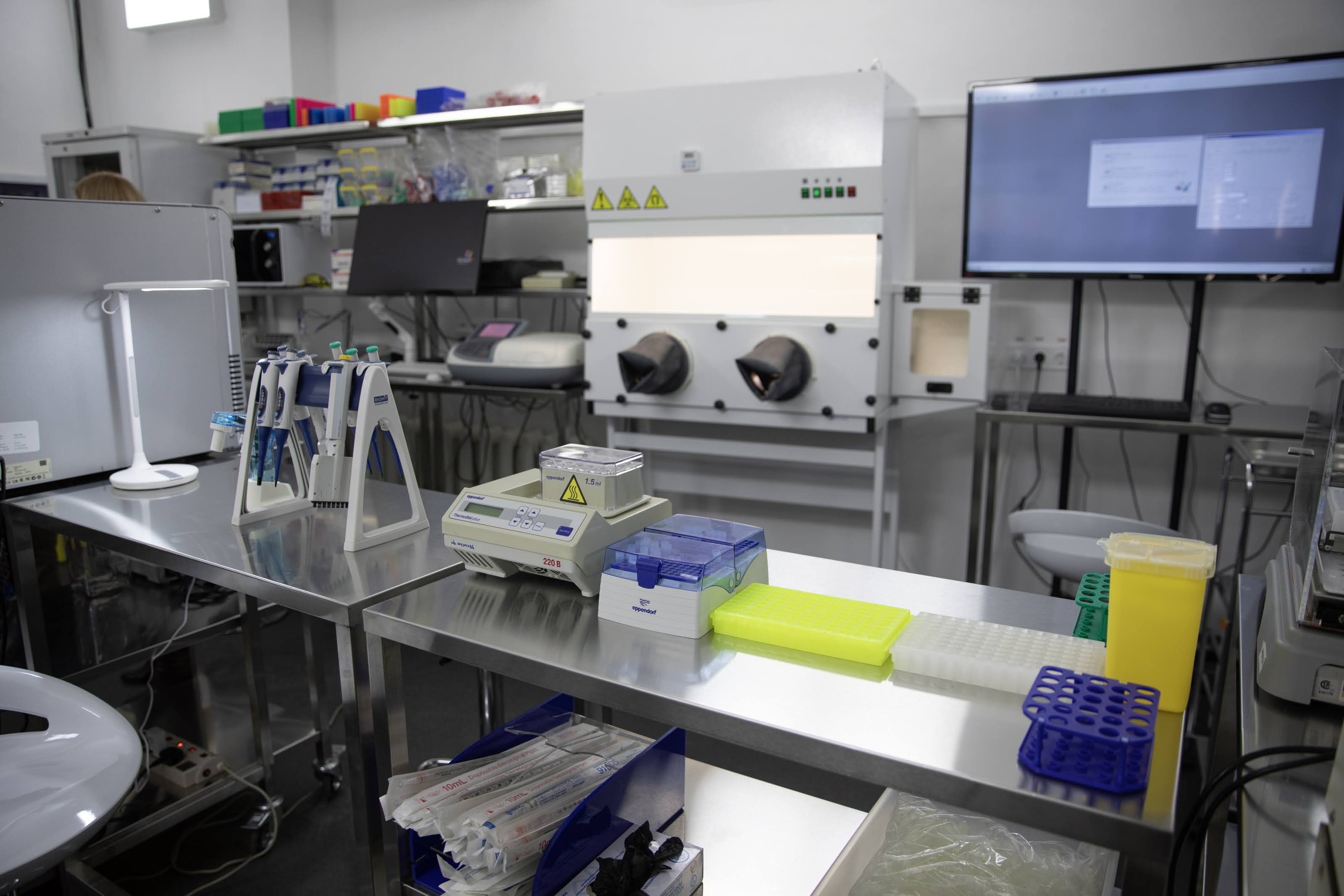
The Dean of the Medical School, Tetyana Liadova, noted that medical professionals closely collaborate with the Biomedical Research Laboratory and have a positive experience of cooperation in education and science. Specifically, the laboratory has served as the base for biochemistry practice for both domestic and international medical students for many years. This year, several groups of postgraduate medical education students have started their training at the laboratory in the fields of "Laboratory Genetics," "Clinical Immunology," and "Clinical Biochemistry." Scientists from the Biological and Medical Schools are working closely together to address the urgent issue of antibiotic resistance in pathogenic bacteria.
The Director of the Institute of Cryobiology and Cryomedicine of the National Academy of Sciences of Ukraine, graduate and professor of the Department of Biochemistry at the School of Biology, Oleksandr Petrenko, pointed out that this event is significant not only for the development of the laboratory, department, and faculty but for Ukrainian science as a whole.
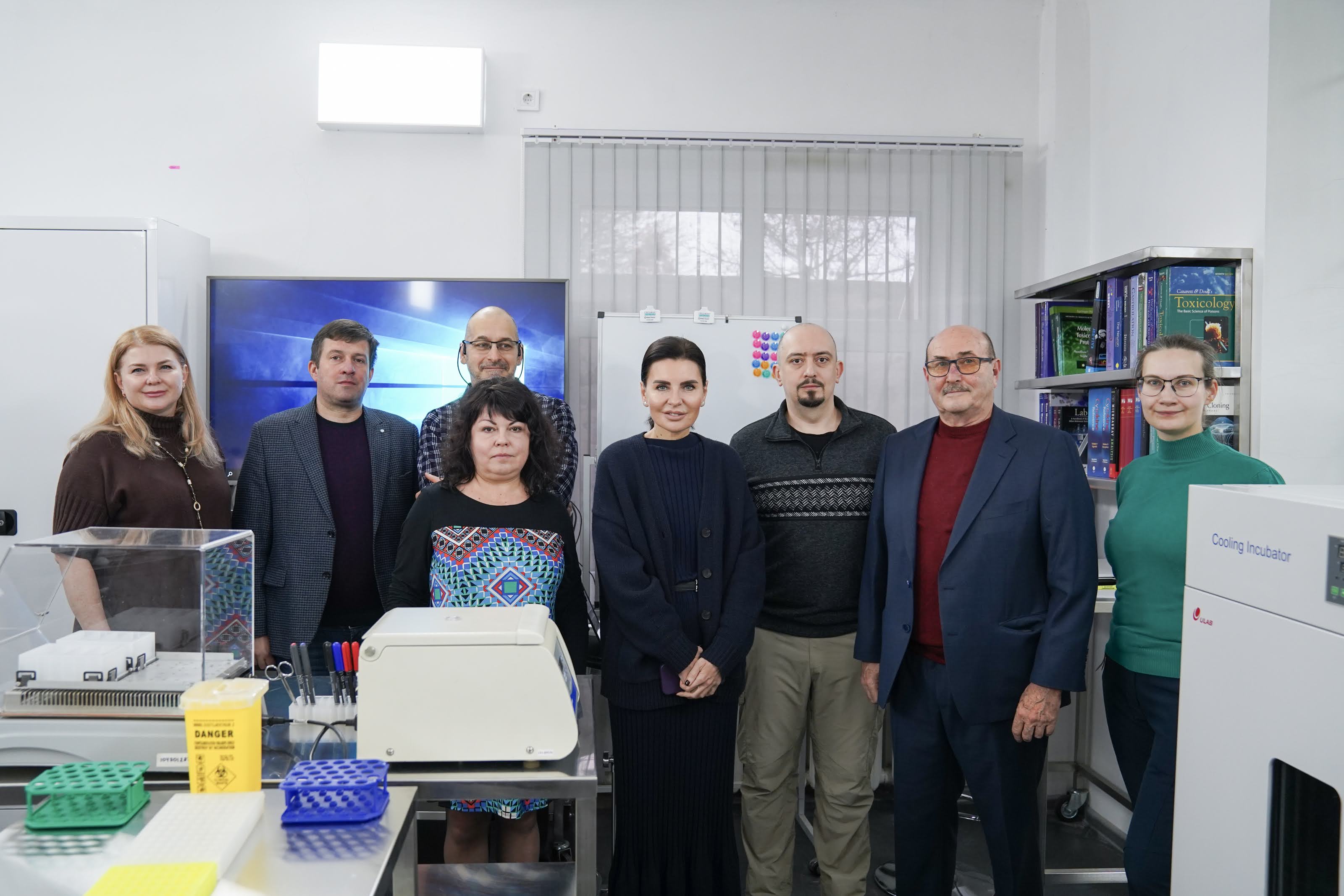
We are proud that, despite the extremely challenging conditions, our university remains a center of both education and science, and that within the walls of Karazin University, the spirit of enlightenment, scientific research, and world-class discoveries continues to thrive!



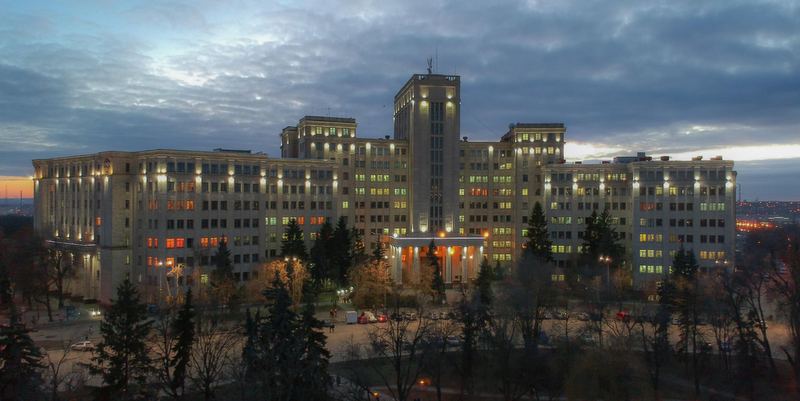
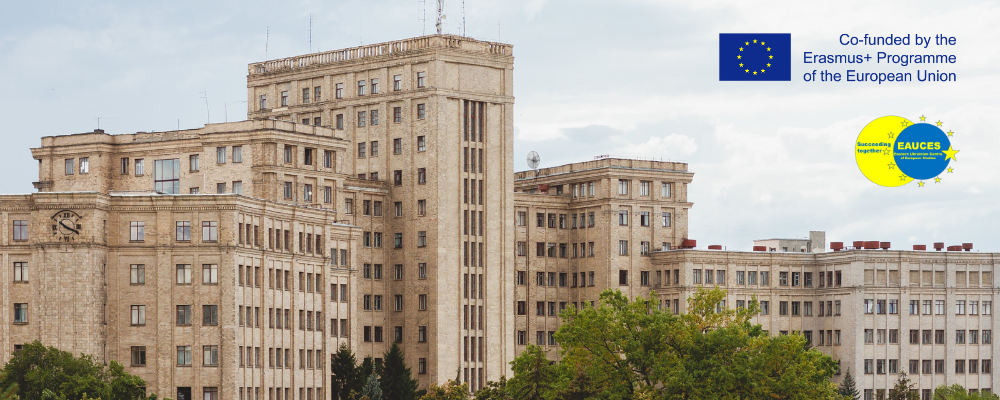
.jpg)
.png)
.jpg)

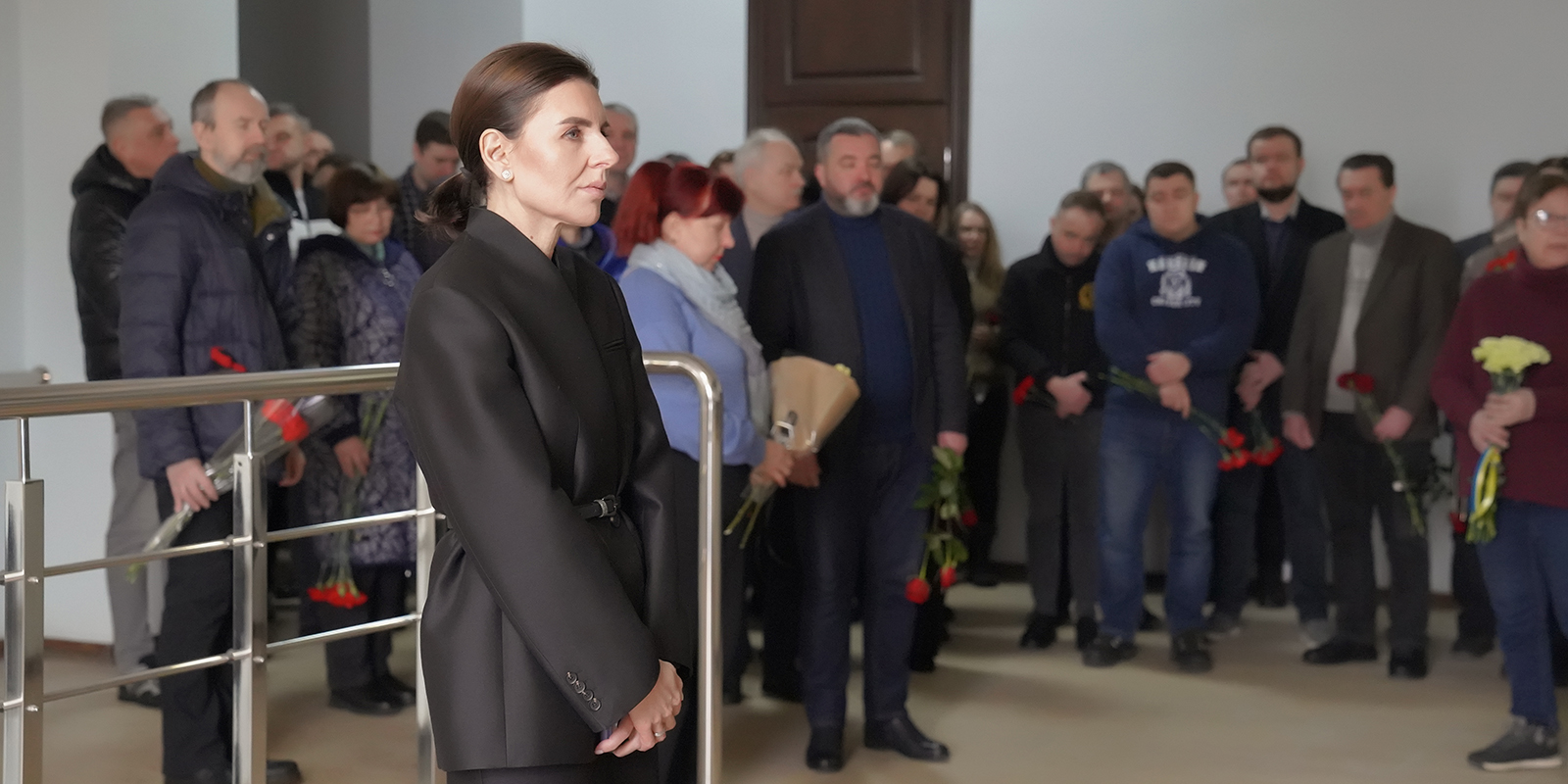
.jpg)
